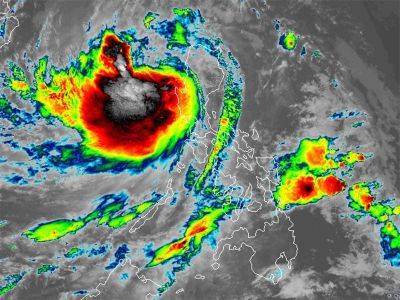Asteroid enters Earth's atmosphere and bursts over the Pacific Ocean; What happens next is surprising
Asteroids are celestial rocks that orbit the sun, just like the planets. Their movement often brings them scarily closer to Earth, and thus space agencies have dedicated themselves to constantly monitoring them. Their systems have been equipped with the best technologies to not only detect but also predict the trajectory of asteroids. Just this year, three asteroids managed to enter the Earth’s atmosphere, bringing the total of such incidents to ten. While the impacts were almost undetectable for the general public, scientists were able to gather crucial intel following the events.
On Monday, October 21, 2024, an asteroid named 2024 UQ impacted the atmosphere about 1,000 km from the California coast. According to reports, the space rock was roughly three meters wide and entered our planet's atmosphere over the Pacific Ocean. The space agencies discovered the asteroid's approach as it was about to enter the atmosphere.
Using only a few observations, the ATLAS survey monitored the space rock momentarily, which was earlier nicknamed A11dc6D, before it safely entered the atmosphere over the Pacific Ocean. The asteroid burst into a fireball that lit the skies at 3:54 a.m. PT on October 22, 2024. Scientists estimated that the energy released by the asteroid upon impact with the atmosphere would be lower than that of the one that entered the skies over the Philippines earlier in September. Peter Brown, a meteor scientist at Western University in Ontario, took to the microblogging site X to inform that the asteroid impact was first observed by the ATLAS telescope in Hawaii. In a series of posts, he explained, "This is now the 10th object for which an impact was predicted in advance. These events are becoming almost routine as surveys like ATLAS, Catalina, and Pan-STARRS become more efficient. This is the third such telescopically detected object to hit Earth in 2024."
Just last month, on September 5, 2024, another such asteroid was spotted just a few hours before it hit Earth. It burst into a fireball over the Philippines on September 5, 2024. According to the European Space Agency (ESA), the Philippines asteroid, named 2024 RW1, was three feet long and was spotted by a







